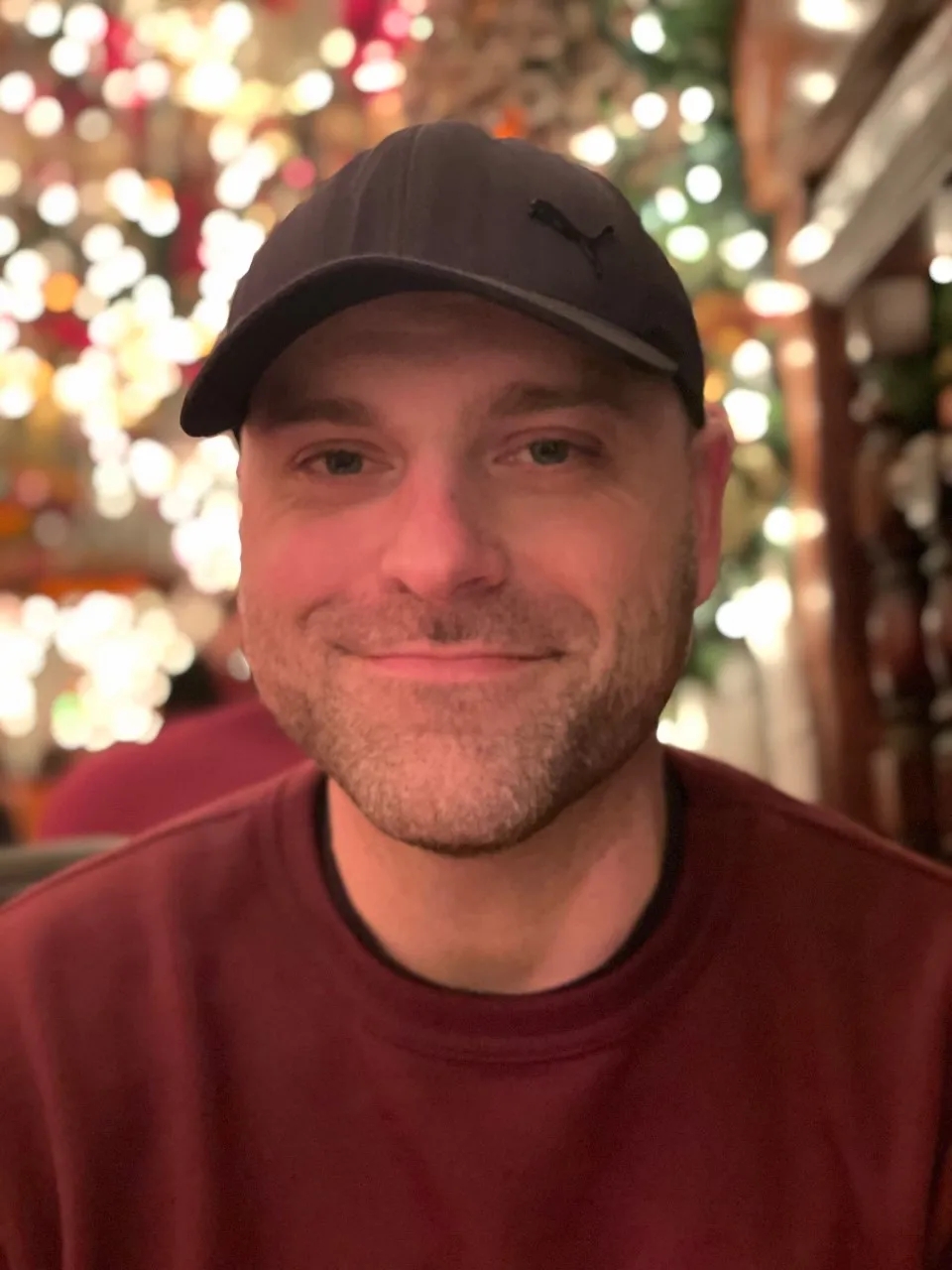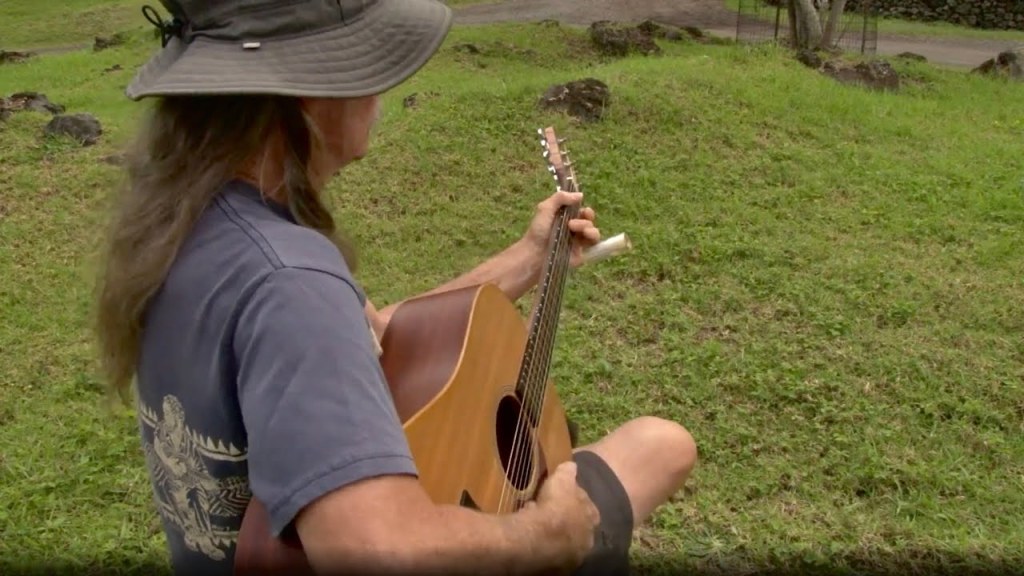All images courtesy of Glass Onyon PR

By Andrew Daly
andrew@vinylwriter.com
For Mojave Desert native Jeff Cotton, working with psych-rock legend Captain Beefheart was a literal gut punch.
As a member of Captain Beefheart’s Magic Band, Jeff Cotton provided angular, psychedelic stylings to several legendary ’60s recordings, most notably, the chronically misunderstood Trout Mask Replica (1969). But like many in Beefheart’s band, Cotton was subjected to various forms of metal and sometimes physical abuse, manifesting in a tense atmosphere, staunchly focused on Beefheart’s swirling, drug-induced visions.
While the music Beefheart created is triumphant, the backstory is treacherous. For Cotton, things screeched to a violent hat one fateful day during rehearsals when the young guitarist was suddenly assaulted by an unnamed member of Beefheart’s ensemble.
For Cotton, the incident was the end of the road regarding his time in the Magic Band. Eventually, through various stops and starts, the psychedelic six-stringer withdrew from the music business, focusing on his family affairs instead.
But with renewed vigor and an undying zest to create, Cotton has returned after a 50-year hiatus with his first recording in years, The Fantasy of Reality, giving fans of Cotton’s influential work a deep look into Cotton’s modern-day musings.
For Cotton, as far as his boot camp-like days with Captain Beefheart are concerned – he’s put the past behind him and is ready to fully move forward, exploring his dreams via guitar and music.
“I have no regrets whatsoever,” Cotton said. “I plan to continue writing, recording, producing, performing, living, and sharing the joy of sound. I am very hopeful and am preparing for live performances, provided that the response to my music warrants it.”
As he prepares to support his first new music in decades, Jeff Cotton recently checked in with me to recount his tumultuous time with Captain Beefheart’s Magic Band, the creation of Trout Mask Replica, and his triumphant return to the music business.
Andrew:
What was the moment which first sparked your interest in music, and who were your early influences?
Jeff:
I was eight years old when I heard Elvis sing “Hound Dog” while I was playing marbles on the floor at my friend’s house. It stopped me cold. I spent a lot of time in the bar with my parents as a kid; country music artists such as Marty Robbins made an impression on me, and the Kingston Trio and the Limeliters. Then when I began playing clarinet in 4th grade, I was exposed to Christmas music. And when I finally took up the guitar on my 13th birthday – lucky 13 – it was the Ventures. Most of my high school years and beyond were spent in the Mojave Desert, where all of the members of the TMR incarnation were living or had lived. Both Don Vliet and Frank Zappa had attended AVHS some years before us.
Andrew:
What were some of your earliest gigs?
Jeff:
Our first record as The Exiles enabled us – thanks to our parents – to rent a hall and pack it with 400-plus kids. We did this repeatedly; a real positive genesis. And as MU, we were privileged to play four sets, two nights per week, in SoCal. Hotels. Places such as Century Plaza, the Beverly Hilton, the Hilton Hotel chain, and the Coconut Grove, with additional gigs being interspersed.
Andrew:
Let’s dig into your new project, The Fantasy of Reality.
Jeff:
As you know, this album is a solo work. I played all instruments, including rhythm guitar, of course, lead guitar, bass, keyboards, harmonica, bass clarinet, soprano sax, and vocals. I arranged the drums, although they are digital. Musically, some of the movements on The Fantasy of Reality date back to late 69′ and early 70′ when I had just exited Beefheart and MU was just forming. A fair amount of this music was recorded directly while it was being written. Yet some of it was written and recorded as late as 2020 here in Hawaii. It’s what I like to call a “smorgasbord.” There are 22 songs covering seven genres.
The title, The Fantasy of Reality, is the brainchild of Randy Wimer, my long-time friend, drummer, and co-wordsmith. The majority of the material was written and recorded in my personal studio in Washington state. But we did a fair amount of vocal work here in the Islands. The mixing and finishing touches, as well as the front cover, are the work of Andre Deslauriers and myself here in Hawaii in our studio. We were fortunate to have the assistance and work of Cal Shenkel, and, as you all know, a creative force on numerous Frank Zappa works, as well as Trout Mask Replica.

Andrew:
How have your collective experiences affected your music?
Jeff:
The biggest switch for me was coming from the perspective of “art for art’s sake” to communication for the sake of connection. As I intimated above, for me, they are one and the same. I think it is impossible to lie. Aren’t we similar to a broadcasting station? For those who have eyes to see and ears to hear, things become clear. Another way to say it is; that it is good to see the difference between fantasy and reality.
Andrew:
How would you say that your playing style has evolved?
Jeff:
In the early days, I was going after speed. In the Beefheart years, I was all about focus and accuracy. During my MU years, I was finding my own melodic space and musical voice. Another 50 years, and right up to the present, I am now embracing all of life in gratitude, knowing that the sum of all our life experiences can be heard and felt through music. For me today, It’s all about the song; the song basically writes itself. Guitar-wise, if it tells me it needs a slinky delta bottleneck, a scruffy blues lick, a smooth yet cutting Wes Montgomery touch, or a Captain Beefheart’s Magic Band splash of bright red, that’s where we go!
Andrew:
Touching on your time with Captain Beefheart, how did you meet Don Vliet?
Jeff:
In the early days, our group Blues in a Bottle, comprised of, among others, John French, Mark Boston, Bill Harkleroad, and myself, played a number of gigs with Beefheart. At that time, we were doing some pretty cutting-edge blues, some great Motown tunes, as well as some originals, and Don would come right up front and inspect the wares. I think I met him at that first gig.
Andrew:
How did you join his band? Was there an audition?
Jeff:
Don was already looking for a guitar player as Doug Moon had already left. John French and I had played together off and on for some years, and John mentioned me to Don. I do not recall an audition. I arrived at the compound, Alex St. Clair fitted me with a red hollow body Gibson, and we immediately got busy with “Trust Us.”
Andrew:
What memories do you have of the infamous Trout Mask Replica sessions?
Jeff:
The Trout Mask period was an intensely emotional time. I think there was only one positive, constructive means of communication between the four of us, and our safety depended upon it; an intense focus on the music to the exclusion of all other distractions. So, when we entered the studio with [Frank] Zappa, we just did what we had been doing every day for eight months or more.
Andrew:
What sort of gear did you use, and were you allowed to pick your guitars?
Jeff:
The gear in Beefheart days was a mix. It was any amplifier that the band could provide, but I can’t even remember a specific amp. I was given a Gibson ES135 single-cutaway hollow body guitar. I had to leave my solid body guitars in the Mojave Desert. And because Captain Beefheart’s Magic Band was playing so few venues in those days, there wasn’t much money for equipment.
Andrew:
In what tangible way did you most affect the recording?
Jeff:
So, as a guitarist, I may have contributed a certain amount of warmth to the tracks, nothing fancy. I was happy to contribute the vocals on “Peña, Ella Guru,” played by a couple of Franks bands, the Mothers. We were all pretty high and also rather surprised after nailing the entire record in six hours. It certainly blew Frank’s mind. He was able to sleep through some of the recordings, and he was the engineer.
Andrew:
Given the infamous nature of those sessions and his treatment of the band, would you say Don was mentally well or overly affected by drug use?
Jeff:
I have been told that back in 1965, the early band traveled to Honolulu, Hawaii, and were consequently booked in a nightclub in Waikiki. The patrons were making requests to play this song and that song, and I believe things got a little tense, as Captain Beefheart’s Magic Band was accustomed to playing the old delta blues and weren’t particularly interested in being the jukebox.
So, on one particular evening, as the band was window shopping in Waikiki, someone handed Don a vial of liquid which I’m told he promptly ingested. After he did, Don said, “There are Fish floating in the atmosphere,” and from that day forward, “The sky was no longer blue, but rather, a very bright red.” I would guess that drugs probably exacerbated his condition; however, from my perspective, I would have to say that Don Vliet did have serious mental health issues. I would say that he was experiencing serious bouts of schizophrenia because from his earliest years as an only child, he had been catered to and pampered
by his parents, who didn’t have the slightest idea of how to handle this young genius; as such, Don’s illness manifested in such a manner.
Of course, we love the man and look past the illness. I would have to say that my two and a half years in Captain Beefheart’s Magic Band was an exciting adventure, one which I wouldn’t trade for the world. I lived and learned a whole lot.

Andrew:
How did the sessions for Mirror Man differ?
Jeff:
Of course, the Mirror Man sessions were much earlier than Trout Mask; in fact, they were some of the first songs that we played when I first joined. Those early sessions at TTG Studios were just about as out there as you could imagine. Both John and myself, unbeknownst to both of us, had been dosed with lysergic acid at the behest of Don Vliet, and this may have contributed to the meandering arrangements; however, there was much room for ad-libbing, as all we had was a loose, and very basic structure to start the piece. Personally, listening back to the work that night in the control room, I thought it sounded much better.
Andrew:
Did you feel creatively restricted at all?
Jeff:
In the early days, playing with Alex St. Clair and Jerry Handley, because much of the music was interpreted on the guitar, there was a certain latitude for freedom. I’d say that the Mirror Man record was the most freely structured music I played with the band, as there was much room for ad-libbing due to the minimal structure. And if you listen to Strictly Personal from the perspective of creative freedom, there was still some latitude. However, by the time Trout Mask Replica was being written, most of it on piano and then written out by John French and then given to Bill, Mark, and myself, there was absolutely zero creative freedom. Though we weren’t invited to contribute melodies or movements, there were times when we would slip one in.
Andrew:
What led you to leave the Magic Band?
Jeff:
My final departure, well ok, here it goes: even though Trout Mask had been successfully completed, the pressure was still on. So, it was back to rehearsal as usual, and on this one day, as we were standing up in our fire engine red living room rehearsing as we did, just about every day of the week, it was seemingly going fine. But then, Don looks over at the temporary drummer – and as you might recall, John has been kicked out – Don looks at the temporary drummer with a sort of wicked glance, and I knew there was trouble. So, the guy gets off his drum throne and comes over to me with cowboy boots on and kicks me in the chest, knocking me down and eventually sending me to L.A. County General Hospital with a punctured lung and cracked rib. So, the next day my father drove down from Lancaster, CA, and back to the desert; I went. And that was the end of that chapter of about two and a half years.
Andrew:
After the incident, did you have further contact with Don?
Jeff:
I only had contact with Don twice. The first time, I was invited up to the Trout house because Don and the guys wanted to hear our new MU album. I heard later that Don got heavy with them after hearing the music. And the last time was probably fifteen years later, I entered a 7-Eleven store in Lancaster, and there he was, smoking a pipe. I remember that I was telling him what I had been doing over the years, and him suddenly interrupting me, and in perfect form, Don said, “Yeah, man, I know what you’ve been up to; I keep up on what you’re doing.” Then he proceeded with the following, “Hey, man, have you heard about John Wayne dying of throat cancer? So, yeah, I stopped cigarettes, and I’m smoking a pipe now.”
Andrew:
What are your overarching memories of Captain Beefheart in terms of his legacy?
Jeff:
His legacy musically, due to his perhaps utter lack of boundaries, was able to break open the mold, the form of rock music, similar to what Coltrane did for jazz. Lyrically speaking, as a scribe for TMR, I was in a unique position to spend many hours, sometimes days, writing his words and thoughts. He is near the top of my list of poets. I really got his unique humor and way of addressing the issues of the time. Personal issues aside, Don showed me the principles of determination, concentration, and focus. If anything, he showed me that the end doesn’t justify the means and that there is always a real need for honesty.
Andrew:
Have you forgiven him? If so, did that take a long time?
Jeff:
I never had to forgive Don because I didn’t hold an accusing spirit toward him. But I had thought that after receiving my draft notice and having the band’s support to extricate me from the Vietnam war, I would be home free. Instead, I got to experience my own personal Vietnam in Captain Beefheart’s Magic Band. However, with that said, the emotional trauma, the PTSD was real, yet with the wise counsel of
my then-wife Erna, for some years, I was able to work through it with a number of the most cutting-edge technologies of the day. When we can accept full responsibility for our past, then our futures can be secure and so much brighter, as well.
Andrew:
What led you to withdraw from music for so long, and why is now the right time to return?
Jeff:
Well, I continued to write music and, on many occasions, perform at various venues with Erna. I did withdraw from the music business to devote much of my time to raising the family. I retired from the business through clear conviction. Fast forward to 2005, I knew then it was time to saddle up. I perceived that this very humble musical offering, The Fantasy of Reality, might contribute to a fresh perspective. With my family raised, I was ready to devote the remainder of my years to writing, recording, and hopefully performing.

– Andrew Daly (@vwmusicrocks) is the Editor-in-Chief for www.vwmusicrocks.com and may be reached at andrew@vinylwriter.com





Leave a Reply